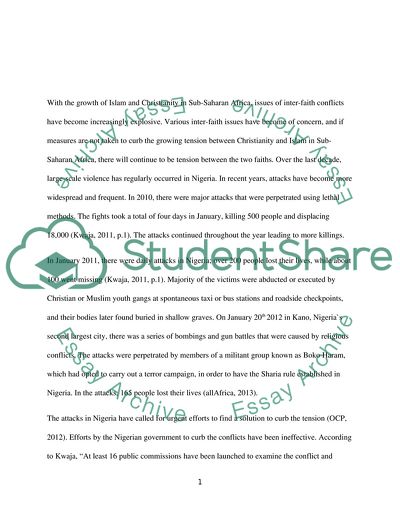Cite this document
(Elimination of Religion in the Politics of Sub-Saharan Africa Essay Example | Topics and Well Written Essays - 2250 words, n.d.)
Elimination of Religion in the Politics of Sub-Saharan Africa Essay Example | Topics and Well Written Essays - 2250 words. https://studentshare.org/history/1792085-african-politics
Elimination of Religion in the Politics of Sub-Saharan Africa Essay Example | Topics and Well Written Essays - 2250 words. https://studentshare.org/history/1792085-african-politics
(Elimination of Religion in the Politics of Sub-Saharan Africa Essay Example | Topics and Well Written Essays - 2250 Words)
Elimination of Religion in the Politics of Sub-Saharan Africa Essay Example | Topics and Well Written Essays - 2250 Words. https://studentshare.org/history/1792085-african-politics.
Elimination of Religion in the Politics of Sub-Saharan Africa Essay Example | Topics and Well Written Essays - 2250 Words. https://studentshare.org/history/1792085-african-politics.
“Elimination of Religion in the Politics of Sub-Saharan Africa Essay Example | Topics and Well Written Essays - 2250 Words”. https://studentshare.org/history/1792085-african-politics.


